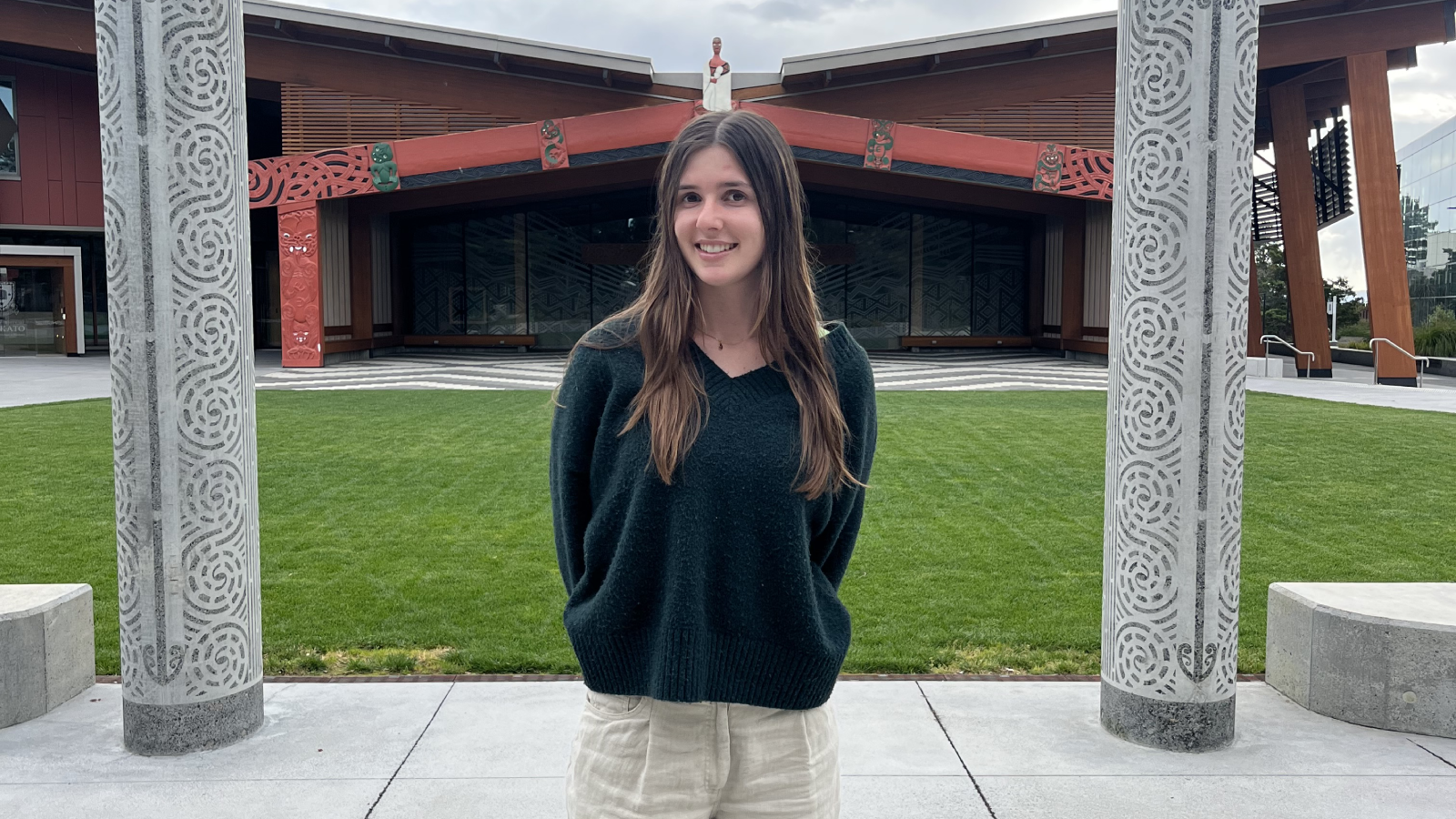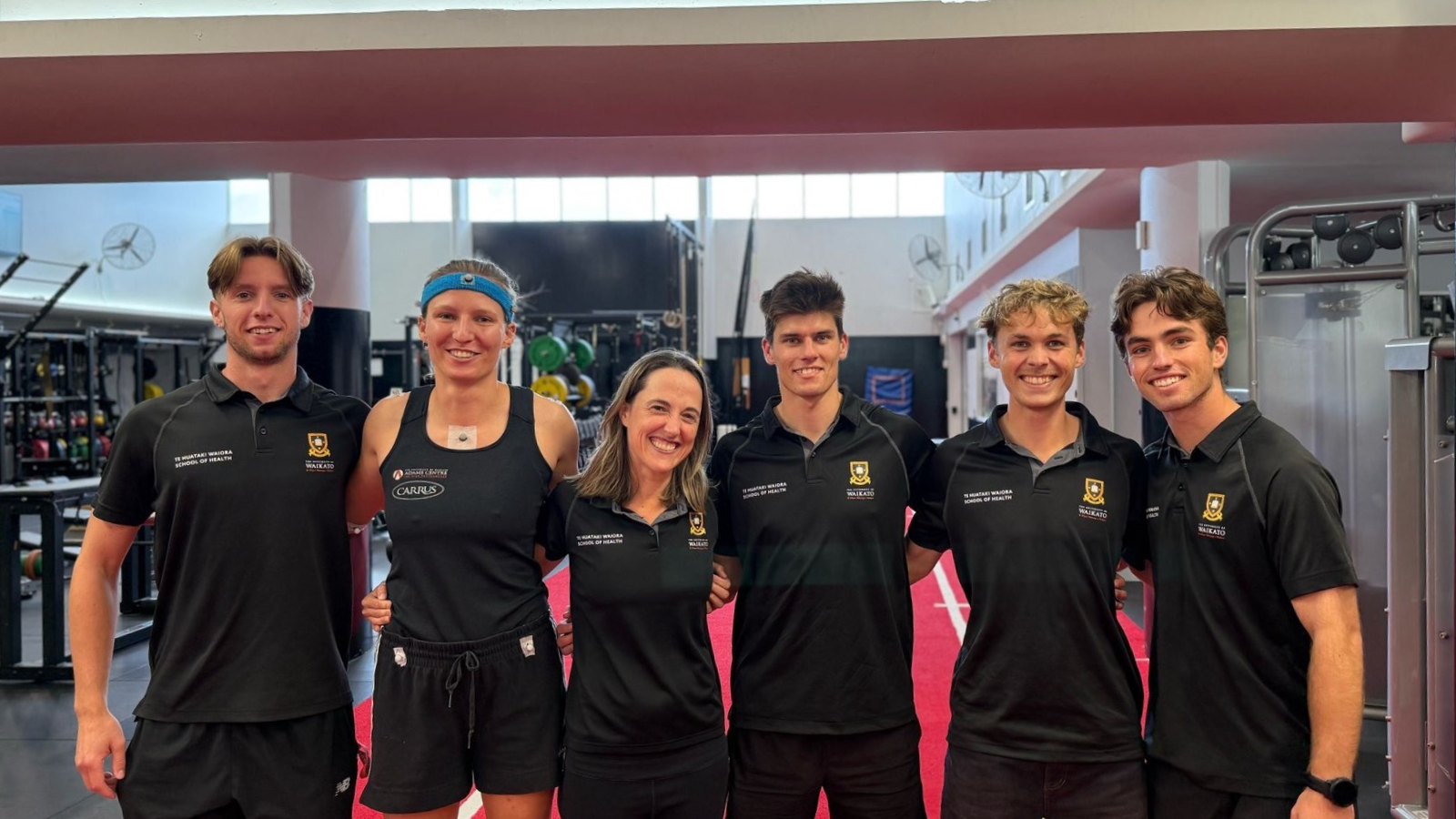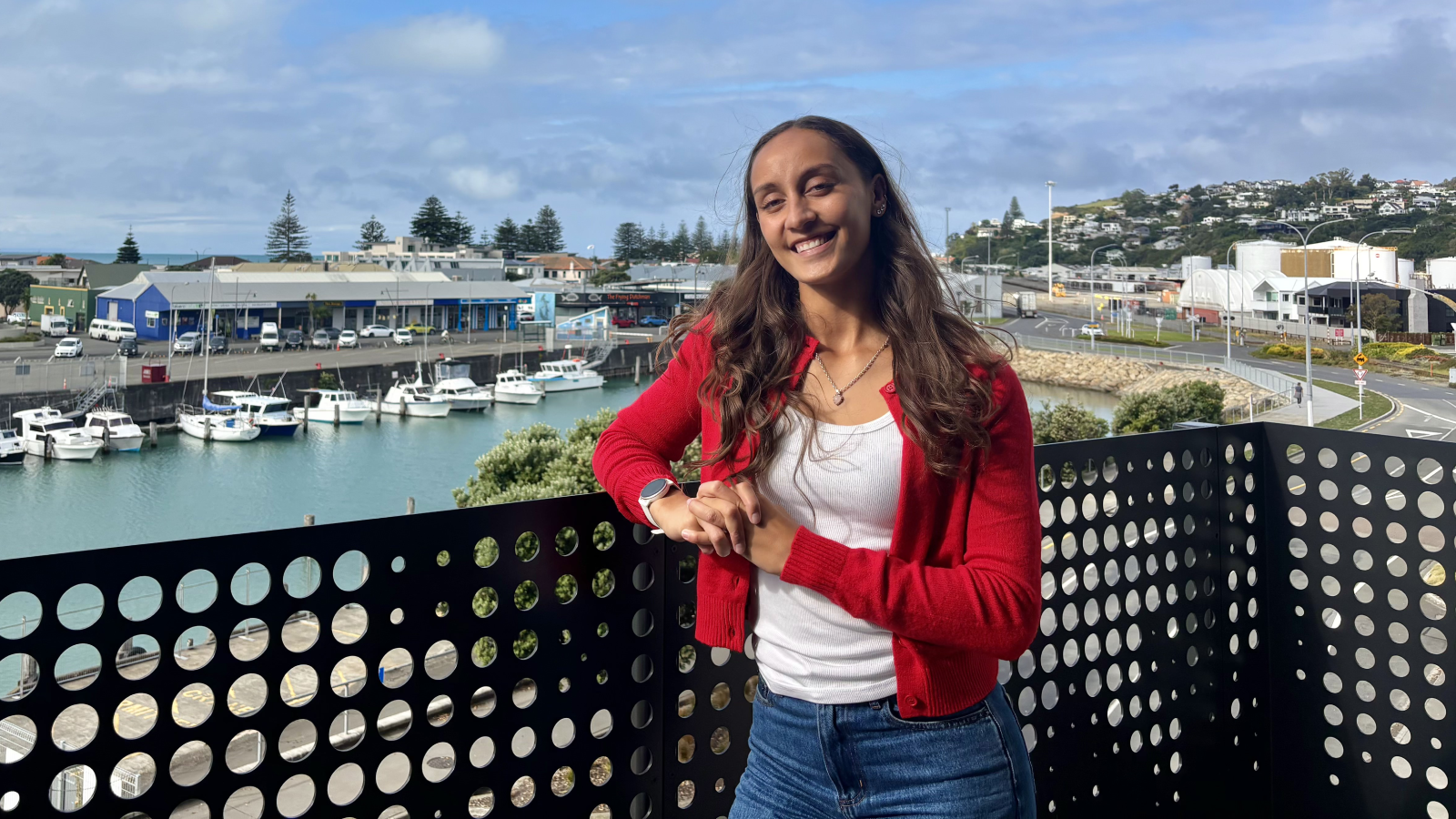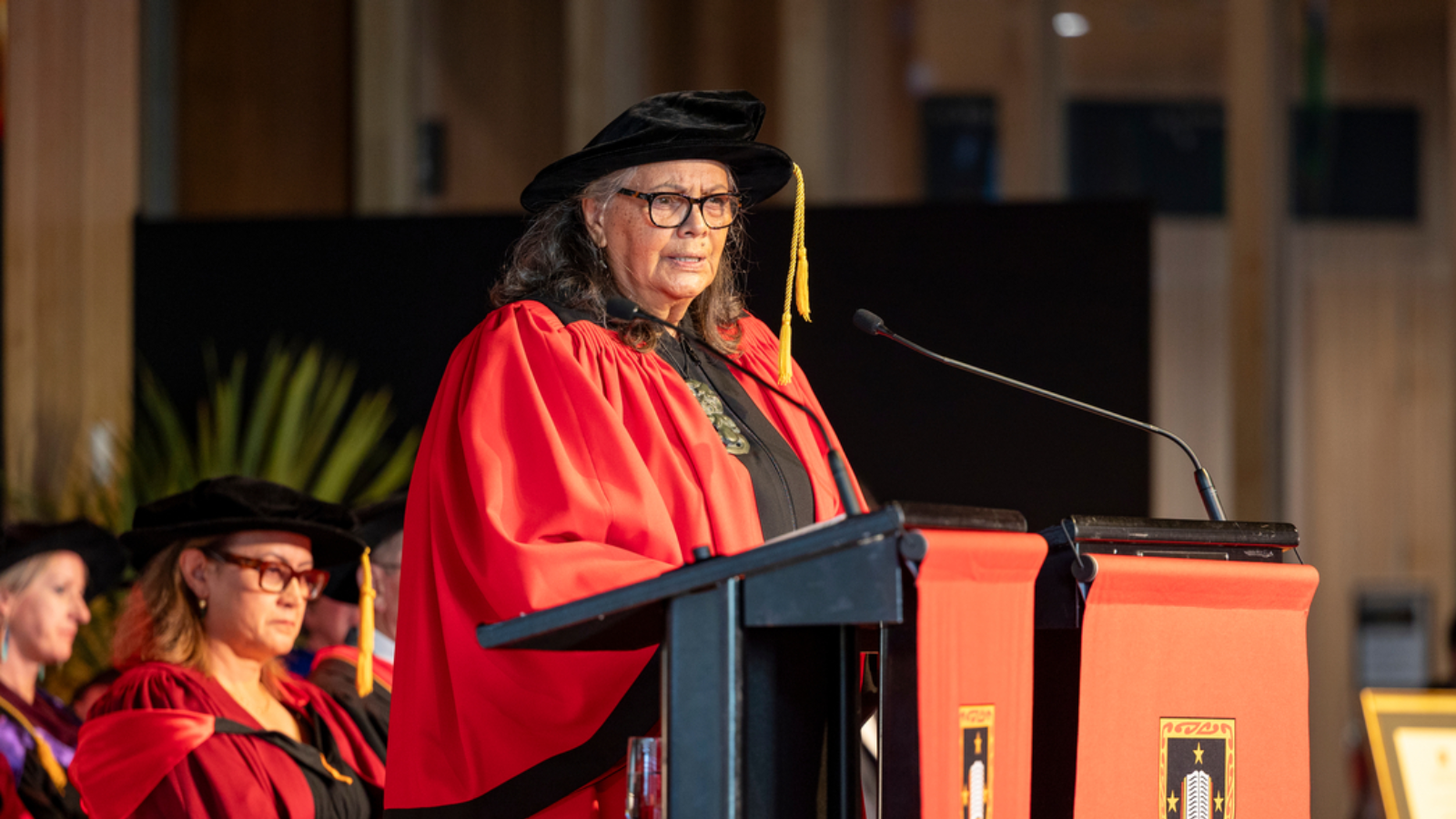When Keimārire Tibble-Brown (Ngāti Ranginui, Ngāti Pūkenga ki Manaia, Ngāti Tūwharetoa, Ngāti Porou) completed her undergraduate degree in Public and Māori Health, she felt there was still something missing. She was looking for a deeper connection to te reo Māori and her whakapapa.
Originally from Tauranga, Keimārire returned in 2024 to study at the University of Waikato’s Tauranga campus, enrolling in the one-year Diploma in Te Tohu Paetahi. The decision was driven by her desire to learn te reo Māori in the place she calls home, surrounded by her whānau, hapū and iwi.
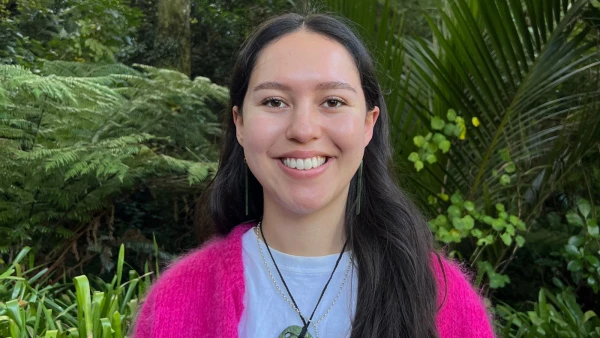
Keimārire Tibble-Brown
“I really wanted to prioritise learning te reo Māori and doing that in a place I descend from felt right,” she says. “It was a way of not only revitalising the language taken from my tīpuna here in Tauranga but also ensuring its continuity for future generations.”
Delivered five days a week from 9am to 3pm, Te Tohu Paetahi offered a completely different learning experience to the tertiary environments she’d been in before.
“It wasn’t your typical academic course,” Keimārire says. “Our kaiako created an environment where we learnt through storytelling, laughter, having fun and getting out into the taiao. We were together every day, which created strong support systems and a deep sense of whānau.”
One of the highlights of the year was participating in reo Māori debates. It was a daunting but empowering experience that pushed students to think and speak spontaneously in te reo.
“It was scary, but also one of the most rewarding parts of the course. It built our confidence and encouraged us to delve into wānanga on topics like tikanga Māori and politics.”
The course offered more than language skills. It was also a space for self-reflection and healing.
“For many of us, this was about reclaiming a language that had been lost through generations. There was a lot of emotional work involved. It wasn’t just about learning a language, it was about learning who we are.”
Now working as an advisor at the Ministry of Health, Keimārire says her reo journey is inseparable from her commitment to health equity for Māori.
“Colonisation, including the systemic erasure of te reo Māori, has contributed to the health inequities we see today. Reconnecting with our language is part of reclaiming rangatiratanga and building healthy futures for our people.”
Keimārire wasn’t alone on her journey. Her partner also took a year off from medical school to complete the course.
“Doing it together was really special. We could speak te reo at home and hold each other accountable.” Keimārire and her partner continue to learn te reo Māori with Te Wānanga o Aotearoa.
Reflecting on the past year, she describes it as both challenging and transformative.
“I feel incredibly privileged to have been able to take a year out of my life to focus on learning te reo Māori. I know that’s not something everyone can do.”
